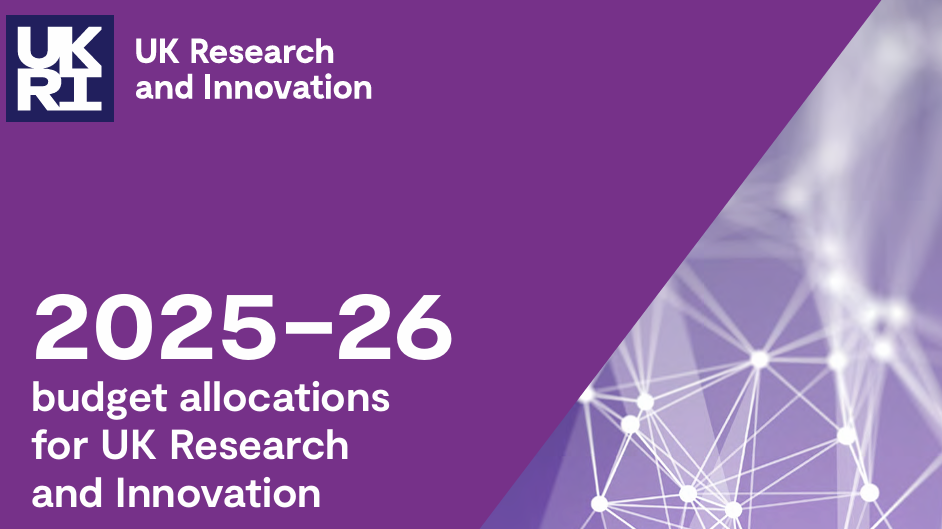Innovate UK launches next round of innovation loans
Innovate UK has announced its latest round of the Innovation Loan competition which offers a flexible, repayable funding option tailored for late-stage innovation projects. This competition is designed to support ambitious, growth‑oriented UK businesses looking to move groundbreaking products, services or models from development into commercial reality. Here’s everything you need to know about this opportunity presented in an accessible and engaging format.
Summary
Round 23 provides funding to support SMEs through both research and early market readiness:
- Loans ranging from £100,000 to £5,000,000, allowing full coverage of eligible project costs.
- Extended project duration of up to five years, with a maximum total loan term allowed of seven years (including repayment and other phases).
- Generous repayment structure featuring interest‑only draws at a rate of 3.7% per annum during the project period, with deferred interest of an additional 3.7% accumulating and becoming payable during the repayment period at 7.4% per annum.
- Allows for extensive pre‑commercialisation costs, such as tooling, market testing, production scale‑up, capital equipment, and up to 20% working capital support, especially welcome to projects making the leap to market.
Eligibility Criteria
To qualify for Round 22, applicants must meet the following requirements:
- Be a UK‑registered micro, small or medium‑sized enterprise (SME).
- Carry out the project in the UK and plan to exploit its results within the UK.
- Demonstrate financial suitability for a loan, including ability to repay and justification for public funding.
- Be a single business; collaboration is not permitted (though subcontracting is allowed with proper justification).
- Innovate UK will conduct a credit evaluation and assess whether your business can fulfil the loan obligations.
- The competition encourages applications from businesses that are underrepresented, including those in regions outside major innovation clusters, women‑led teams, ethnic minority groups, those with non‑traditional educational backgrounds and people with disabilities.
Scope of Funded Projects
The Innovation Loan competition targets late-stage innovation efforts intended to create significant economic and societal benefits:
- Projects should deliver innovative products, services or processes, substantially ahead of what currently exists, or demonstrate innovative business models.
- Must align with Innovate UK’s “future economy” themes, such as net zero, health and wellbeing, next generation digital technologies, advanced materials, AI, robotics, quantum, and more.
- Applicants must clearly show:
- A compelling, innovative concept.
- A sound business plan evidencing market need and strong commercial potential.
- A capable team to drive the project to completion.
- Risk awareness with mitigation plans.
- Robust financials that represent good value and provide a repayment strategy.
- Why the project cannot be self‑funded or supported through private or other public funding.
- The inclusion of a pre‑commercialisation workstream is encouraged to cover prototyping, testing, tooling, inventory generation, and up to 20 percent working capital, enabling smoother transition to market.
Key Dates and Timeline
Here are the important milestones for Round 23:
- Competition opened on 4th September 2025.
- Pre‑application briefing webinar to be held on 17th September 2025, with recordings and slides available to help applicants understand the process and changes.
- Financial deep‑dive workshops on 24th September, 29th September, and 9th October 2025, focusing on revenue forecasts, working capital planning and capitalisation—recommend participation for applicants serious about their financial submission.
Why You Should Consider Applying
Innovate UK’s Innovation Loan Round 23 offers a compelling package for SMEs advancing innovation to commercial deployment:
- Access to sizeable capital (up to £5 million) without equity dilution or personal guarantees; Innovate UK takes a secured debenture, not personal assets.
- Interest‑only drawdowns with deferred interest create a cash flow advantage during development and validation phases, helping you preserve runway.
- Funding covers both R&D and pre‑commercial activities, making it easier to prototype, validate, tool up and prepare for launch.
- Offers an inclusive approach, encouraging applications from diverse and underrepresented founders and regions.
- Engaging briefing sessions and workshops support applicants in strengthening their submissions and understanding evaluation criteria.
Why Apply?
Innovate UK’s Innovation Loans Round 23 is a strategic opportunity for UK SMEs with mature, market-ready innovations. The combination of generous loan sizes, flexible terms, inclusive eligibility, and practical financial support makes this round especially attractive.
If your business is driving late-stage R&D with a clear route to commercial success and societal benefit, this may be the funding pathway you need to cross the gap to market.
What Next?
For a FREE consultation to discuss your project, contact RedKnight today.
Innovate UK to streamline funding pathway
Innovate UK Aims to Improve Path to Funding
On 15th August 2025, Innovate UK unveiled a set of four targeted improvements aimed at reshaping how businesses access innovation funding. These enhancements are rooted in feedback from applicants and partners and are specifically crafted to make the process more streamlined, equitable, and inclusive.
A Simpler Application Process
Applying for funding has long been seen as a hurdle, especially for first-time applicants. Innovate UK is addressing this by redesigning its application forms using a tested framework. The goal is to focus on essential information, like how an idea addresses a specific need, while removing unnecessary administrative burdens. These revamped forms are intended to be more intuitive and efficient for both newcomers and experienced applicants.
A Faster Route to Funding
Speed is critical for innovation. In response, Innovate UK is working towards delivering a Grant Offer Letter within 90 days of the competition closing. This shorter turnaround is designed to help businesses plan effectively, move forward with confidence, and benefit from more agile programme delivery. If they can achieve this target, it will be a welcomed improvement on current practices, where the result alone can take between 4 to 8 weeks, before even starting the grant agreement preparation phase.
A Broader, More Diverse Assessor Pool
To boost fairness and improve decision quality, Innovate UK is expanding its assessor base. This means involving a wider range of technical and commercial experts from across the UK. A more diverse panel, the agency believes, helps mitigate bias and ensures that excellent ideas are recognised regardless of origin. Whilst this is a positive step forward, one of the biggest frustrations with assessor feedback is the contrasting viewpoints which leave applicants not knowing which to believe. Adopting a consensus meeting approach, similar to the European Commission (EC) could be one way to addressing this challenge.
Support Adapted to Project Needs
Recognising that one size doesn’t fit all, Innovate UK is shifting to a model where monitoring and support are tailored to individual project requirements. Some projects will benefit from hands-on guidance in key areas, while others will have greater autonomy. This flexible approach aims to enhance outcomes and deliver better value for public investment.
Enhancing Access and Supporting Underserved Applicants
A core aim of these changes is to make funding more inclusive, particularly for first-time applicants and those from underrepresented groups in innovation. To facilitate this, Innovate UK has introduced supporting tools to guide applicants through the improved process. While the announcement doesn't spell out every detail of these tools, it’s clear that resources have been made available to help applicants navigate the new procedures.
Why It Matters?
- Clarity and Speed: Simplified forms cut through complexity, saving time and reducing frustration.
- Decision Certainty: A 90-day turnaround on grant letters brings reliability and momentum to planning.
- Fair Evaluation: A diversified assessor panel boosts fairness and elevates decision quality.
- Adaptive Support: Tailored oversight ensures projects receive the right level of guidance to deliver effectively.
These updates are designed to improve the user experience and the inclusivity and responsiveness of Innovate UK’s funding system. The organisation emphasises that the improvements are grounded in direct feedback, signalling a more collaborative and adaptive approach going forward.
With this announcement, Innovate UK is taking concrete steps to lower barriers, speed up process, and level the playing field. The redesigned applications, faster decisions, expanded assessor pool, and bespoke support show a clear commitment to making innovation funding more user-friendly and impactful. As these changes roll out of the coming months, they promise to make the system more transparent and accessible for innovators across the UK.
DRIVE35 Funding to Boost Zero-Emission Vehicle Innovation
Three new competitions have launched under the UK’s DRIVE35 innovation programme, providing £85 million in grant funding to accelerate the decarbonisation of commercial road transport. These opportunities, opened on 15th July 2025, are designed to support innovations in zero-emission vehicles and supporting systems, spanning heavy goods transport, last-mile delivery, and retrofit solutions. The competitions are part of the UK’s broader strategy to achieve net-zero emissions in transport and foster green industrial growth through real-world demonstrations and technology deployment.
The first of the three competitions focuses on heavy and long-haul commercial vehicles. It aims to support the development and demonstration of battery-electric trucks, hydrogen fuel cell technologies, and associated refuelling or charging infrastructure. This funding call is intended for ambitious projects that can help de-risk the adoption of zero-emission heavy vehicles at scale and facilitate integration into existing fleet and logistics operations. Projects must address both the vehicle technology and its supporting ecosystem—this includes grid connections, refuelling depots, and digital platforms to optimise use. The competition is open to UK-registered organisations, including large manufacturers, fleet operators, infrastructure developers, and research institutions. Collaborative projects are strongly encouraged to ensure system-level innovation. Funding levels typically cover between 40% and 70% of project costs, depending on business size and project type. Projects are expected to last between 18 and 36 months, with proposals due in the autumn. This competition directly aligns with the UK Government’s goal to end the sale of new non-zero emission HGVs by 2040 and develop a robust domestic supply chain for clean freight technologies.
The second competition targets the urban delivery and last-mile logistics sector, supporting the transition from diesel-powered vans to electric and other zero-emission vehicles. It places emphasis on practical, deployable innovations such as depot electrification, battery-as-a-service business models, and digital tools for route optimisation. Projects might involve electrifying an urban delivery fleet, integrating smart charging systems at depots, or trialling new logistics platforms designed to reduce vehicle mileage and emissions. This competition is particularly well-suited to SMEs, start-ups, and mid-sized operators working in fleet services, vehicle conversion, logistics software, or depot infrastructure. Funding is available for feasibility studies, industrial research, and experimental development, typically covering 45% to 70% of costs. Proposals must demonstrate clear potential for emissions reduction, commercial viability, and operational readiness. Like the other competitions, it opened on 15 July 2025, with deadlines expected in the early autumn and project durations ranging from 12 to 30 months. This call supports the UK’s clean cities agenda, tackling both congestion and air quality by promoting scalable, zero-emission alternatives in urban logistics.
The third competition focuses on specialist vehicle retrofit and conversion solutions, aimed at transforming existing diesel-powered vehicles for zero-emission use. This includes sectors such as construction, municipal services, events and utility vehicles, where bespoke or legacy vehicles are still widely used. It also covers the development of retrofit kits, hybrid systems, and conversion platforms to repurpose diesel vehicles into clean alternatives. By investing in this area, the competition supports not only emissions reductions but also cost-effective asset reuse and the development of a UK retrofit supply chain. Projects should involve a combination of retrofit specialists, vehicle operators, training providers, and possibly certification bodies. These projects are eligible for funding that typically covers between 45% and 65% of costs, depending on size and scope. Demonstration of the solution in real-world settings is essential, alongside evaluation of performance, emissions impact, and cost effectiveness. The competition is particularly attractive for retrofit SMEs and solution providers looking to prove the viability and safety of their technologies at fleet scale. Like the other DRIVE35 competitions, it opened on 15 July 2025 with expected deadlines in the autumn and projects running up to two years in length.
Collectively, these three competitions represent a significant strategic investment in clean mobility. By targeting three critical areas—heavy freight, urban delivery, and retrofits—they offer a comprehensive approach to transforming road transport across different use cases and vehicle types. Each competition requires an integrated systems approach, meaning applicants must consider not just vehicle technology, but also how it interfaces with infrastructure, logistics platforms, energy systems, and users. This encourages innovation that is scalable, commercially viable, and aligned with wider net-zero goals.
The timing of these competitions is also important. With the UK Government pushing hard on its transport decarbonisation plan and legislating to phase out internal combustion engine vehicles, industry now has both the regulatory certainty and financial backing needed to take bold steps toward zero-emission operations. The DRIVE35 funding allows businesses to demonstrate their technologies under real operating conditions, gather performance and user data, and refine their business models, all while reducing risk and building market credibility.
Each competition is tailored to different kinds of applicants. Larger OEMs and logistics companies will likely find the heavy-duty vehicle competition most relevant, whereas SMEs, start-ups, and digital innovators may be best suited to the last-mile delivery challenge. Retrofit specialists, vocational vehicle operators, and sustainability-focused service providers will find the retrofit competition a unique opportunity to prove and scale their solutions. What they all share, however, is an opportunity to secure substantial co-funding and build partnerships that can lead to long-term commercial success and environmental impact.
To succeed in these competitions, applicants should begin preparing early. Building a strong consortium is essential, projects will be judged not only on technical merit but also on their commercial potential, alignment with user needs, and ability to deliver measurable outcomes. Applicants should also engage with stakeholders such as fleet users, energy providers, local authorities, and regional innovation hubs to maximise their chances of impact and adoption.
As the UK seeks to lead in the global race to zero-emission transport, these DRIVE35 competitions offer a timely boost for innovators, manufacturers, and service providers alike. They will help to unlock investment, support the creation of green jobs, and demonstrate the viability of clean commercial vehicle solutions across the UK. With the deadline fast approaching, now is the time for ambitious businesses to act.
New £10M Opportunity for UK Innovators
On 7th July 2025, Innovate UK launched an exciting new funding opportunity aimed at helping early-stage UK businesses bring their groundbreaking technologies closer to market. The Growth Catalyst Early Stage: New Innovators competition will provide up to £10 million in funding to UK-registered micro and small businesses that have not previously received Innovate UK project funding. This initiative is designed to help high-potential startups progress toward becoming high-growth, scalable businesses. Applications are open now and must be submitted by 11:00am on Wednesday, 6th August 2025.
The competition is part of Innovate UK's wider Growth Catalyst programme, which pairs grant support with targeted business development support delivered through Innovate UK’s Business Growth (formerly EDGE) and Business Connect teams. By combining funding and tailored mentorship, Innovate UK aims to help early-stage firms accelerate their innovation journeys, validate their commercial ideas, and lay the foundations for scale-up.
Each successful applicant can receive between £25,000 and £50,000, covering 100% of eligible project costs. This funding will be delivered through a phased payment model: 70% is issued at project start, 20% after evidence of spend, and the final 10% upon successful project completion and approval. Projects must start on 1st November 2025 and run for a duration of 3 to 6 months, with a strict end date of 30th April 2026.
To qualify, applicants must be UK-registered micro or small businesses (typically under 50 employees) that have not previously received Innovate UK funding for a project, though previous awards through initiatives such as Young Innovators, Catapults, or Business Growth are permitted. This competition is ideal for startups at a formative stage of development, seeking to demonstrate proof of concept or early commercial traction.
The scope of the competition focuses on innovations that align with at least one of the UK government’s five critical technologies:
• Artificial Intelligence (AI) and Machine Learning (ML) – including new AI tools or innovations in trusted and responsible AI.
• Semiconductors – such as UK-based advancements in semiconductor design, materials, or manufacturing processes.
• Future Telecommunications and Advanced Connectivity – including technologies like photonics, open and interoperable networks, and cyber-secure or quantum-safe communications.
• Quantum Technologies – spanning scalable quantum computing platforms, quantum-classical hybrid algorithms, and applied quantum systems.
• Engineering Biology – involving synthetic biology, bioengineering tools, and novel sustainable biomanufacturing approaches.
Eligible projects must be business-led, UK-focused, and capable of demonstrating clear innovation, commercial potential, and societal or economic benefit. Projects must deliver more than academic research; Innovate UK is looking for solutions that show promise for commercial application and real-world impact.
Applications will be assessed across four core areas, each weighted equally:
1. The Idea – how innovative the concept is, the problem it solves, its market potential, affordability, and appeal to investors or customers.
2. Impact and Added Value – including how the project will benefit the applicant’s business, the UK economy, society or the environment, and why public funding is necessary.
3. Business Resources and Capabilities – an evaluation of the team’s ability to deliver, routes to market, and how the business addresses equality, diversity and inclusion.
4. Work Packages and Costs – clarity and justification of costs, project milestones, risk assessment, and freedom to operate from an IP perspective.
Applications are submitted online and must also complete non-scored sections relating to financial assistance declarations, compliance with animal welfare policies, export controls, and national security considerations. Subcontracting is allowed within the UK and internationally, but overseas suppliers must be justified with evidence that UK alternatives were explored.
Key dates for the competition are as follows:
• 7th July 2025 – Competition opens
• 8th July 2025 – Pre-recorded briefing available
• 6th August 2025 (11:00am) – Deadline for submissions
• 2nd September 2025 – Applicants notified of outcomes
• 1st November 2025 – Project start date
One important condition is that applicants can only submit one application to this competition. If a business submits more than one proposal, only the first will be considered. Additionally, the funding is classed as Minimal Financial Assistance (MFA), meaning a business must not have received more than £315,000 in public funding over the past three financial years.
This competition forms part of a broader government effort to catalyse innovation in sectors seen as essential to future economic growth and national resilience. By focusing on the five critical technologies (AI, semiconductors, connectivity, quantum, and engineering biology) the UK aims to secure global leadership in emerging markets.
Applicants are strongly encouraged to align their projects closely with one or more of these strategic areas and to clearly demonstrate how the funding will help them make significant progress toward commercialisation. Innovate UK is particularly interested in projects that can show:
• A clear route to market or customer validation
• The potential to unlock future private investment
• Societal or environmental benefit
• A strong case for public support to de-risk early innovation
Businesses interested in applying should act quickly, as the deadline is fast approaching. With only one application permitted per business and a strong focus on quality, clarity and strategic alignment, early preparation and careful planning are essential to success. For a free consultation to discuss your project idea, contact RedKnight today.
UK Agri-Tech SMEs Target Saudi Growth
UK SMEs Tap into Saudi Arabia’s Agri Tech Opportunity via Innovate UK’s GBIP
As agri tech innovation reshapes modern farming across the globe, Innovate UK is inviting UK-based small and medium enterprises (SMEs) to compete for a coveted spot in its Global Business Innovation Programme (GBIP): Agri Tech, Saudi Arabia. Registration opened on 16th June 2025 and closes on 27th July 2025, offering up to 15 ambitious businesses an exceptional opportunity to accelerate their international expansion.
Who Should Apply?
Eligibility is open to UK-based, innovation-led companies with fewer than 250 employees. Each application must be led by a senior decision-maker, such as a CEO or founder, who is prepared to fully commit to all three phases of the programme.
Importantly, participants must attend a two-day UK-based ‘Get ready’ workshop, a week-long innovation visit to Saudi Arabia, and a follow-up ‘Exploit the opportunity’ workshop post-visit. Businesses who previously participated in a GBIP for the same market/sector must demonstrate measurable impact from prior rounds and outline how this particular programme offers fresh value.
Programme Timeline & Structure
Innovate UK has structured the programme within a 9–12 month window, starting with preparatory activity and culminating in strategy planning:
• Get ready workshop: 15th–16th September 2025 (tbc)
• On-site innovation visit, including a stop at the Saudi Agriculture Conference in Riyadh: 17th-24th October 2025
• Exploit the opportunity workshop: 13 January 2026 (tbc).
Additionally, a global insight and briefing webinar is scheduled for 3rd July 2025, providing potential applicants with essential guidance on eligibility, evaluation, and the Saudi agri tech ecosystem.
What’s Funded?
Innovate UK will cover flights, accommodation, in-market travel, and conference fees for one senior representative per company. While most costs are covered, a refundable commitment fee of £1,000 is required upon acceptance, refunded upon completion of all programme phases and deliverables.
Why Saudi Arabia?
Under its Vision 2030 plan, Saudi Arabia is rapidly modernising its economy, with agriculture and food security now taking centre stage. Despite the harsh desert environment and scarce freshwater resources, agriculture contributes around 4.3% to KSA’s non oil GDP, employing over 350,000 people.
Recent UK–KSA developments, notably the March 2024 science and technology MoU, have set the stage for enhanced R&D collaboration, aligned with critical needs in food, water, clean energy. The KSA government is investing in:
• Controlled-environment agriculture (CEA)
• Precision breeding and agriculture
• Precision livestock technologies
• Aquaculture
• Food waste valorisation and circular economy solutions.
These focal areas constitute the thematic pillars for the GBIP cohort.
Scope & Focus Areas
Innovate UK is seeking innovative solutions across several cutting-edge categories:
• Aquaculture: including health diagnostics and AI-enhanced feeding systems
• CEA & precision agriculture: robotics, sensor networks, drip irrigation, integrated pest management
• Livestock tech: health monitoring, fertility management in dairy and poultry
• Circular-economy systems: turning agricultural or food waste into high-value products.
These diverse themes reflect the breadth of KSA's ambitions and provide rich potential for UK SMEs to add value.
What Participants Gain
Accepted businesses can expect to unlock multifaceted benefits through the GBIP:
1. Market knowledge & SME profiling: DNAs from in-market visits and networking.
2. High-level introductions: tailored connections to government, R&D, and industry leaders.
3. Partnership opportunities: enabling joint R&D projects and bi-lateral funding calls.
4. Value proposition refinement: through expert coaching and peer exchange.
5. Pipeline building: with incubation support via a dedicated Innovation and Growth Specialist.
Combine these with direct exposure at the Saudi Agriculture Conference, and participants are well-positioned to forge lasting commercial and research partnerships.
Future Leaders Fellowships Round 10
Driving Research and Innovation Leadership
UKRI Future Leaders Fellowships (FLF) programme is back with Round 10. One of the UK’s most prestigious funding schemes designed to empower the next generation of research and innovation talent. With up to £110 million in grant funding available, this round is set to support outstanding individuals with the vision, drive, and capability to become world-leading leaders in their field.
Applications for Round 10 open on 23rd June 2025 and close at 11:00am on 5th November 2025.
What Is the Future Leaders Fellowship?
The FLF programme provides sustained, flexible support to early-career researchers and innovators working across all sectors. Its overarching aim is to retain, attract, and nurture future talent, providing a springboard for the next wave of high-impact research and commercially significant innovation.
Each fellowship offers up to £3 million in funding over a four-year term, with the option to apply for a further three years of support. Unlike many grants, FLF is open to individuals working in academia, industry, public sector, and charitable organisations alike, encouraging cross-sector mobility and knowledge exchange.
Aims of the Programme
The FLF scheme seeks to:
- Develop the next wave of high-potential leaders across research and innovation.
- Foster ambitious, original, and interdisciplinary work that would otherwise be hard to fund through standard routes.
- Bridge sectors by supporting work that spans academia, business, and public or third sectors.
- Encourage long-term career development, giving researchers the time and resources to build a robust portfolio.
- Support mobility, enabling fellows to move between sectors or institutions to maximise impact and career progression.
This combination of financial support and long-term vision positions the FLF as a unique and highly impactful programme within the UK’s innovation funding landscape.
Scope and Thematic Focus
Round 10 continues UKRI’s commitment to supporting transformative work across all disciplines and sectors. However, the guidance outlines several key themes and priorities, encouraging applicants to consider challenges with long-term economic and societal relevance.
The programme encourages proposals that:
- Advance the UK's net zero goals, particularly through innovations in clean energy, sustainable manufacturing, or environmental resilience.
- Strengthen national security and resilience, including cybersecurity, advanced materials, or critical infrastructure.
- Enhance health and wellbeing, especially in areas aligned to NHS priorities, data-driven healthcare, or personalised medicine.
- Support technological sovereignty, such as artificial intelligence, semiconductors, quantum technologies, and photonics.
- Tackle inclusive growth, aiming to reduce regional inequality or promote diversity in research leadership.
While the programme remains open to all innovative topics, these themes reflect UKRI’s strategic priorities and global challenges where future leadership will be vital.
Who Can Apply?
Applicants must be hosted by a UK-based organisation. This includes:
- Higher education institutions
- Businesses
- Catapults and research and technology organisations (RTOs)
- Charitable organisations
- Public sector bodies (such as the NHS, government agencies, or local authorities)
You don’t need a PhD, and there’s no restriction on the number of years since your last degree. Instead, UKRI is looking for people who:
- Have a compelling track record relative to their career stage.
- Are transitioning to or establishing independence.
- Are proposing ambitious, original work that goes beyond the norm in their discipline or sector.
Importantly, applicants must not already be established research or innovation leaders (for example, leading a significant grant or commercial R&D portfolio).
Funding Offer
Applicants can request between £100,000 and £3 million in grant funding to cover:
- Salary (for both the fellow and team members)
- Research and development costs
- Equipment and infrastructure
- Training, mobility, and collaboration activities
All work must be carried out in the UK, with project outputs expected to deliver benefit from or within the UK. Fellows are encouraged to explore secondments, international collaborations, and inter-sector mobility where it enhances impact.
Projects must last a minimum of four years. A further three years of funding may be available via a separate process if significant progress has been demonstrated.
Application Process
There are two application routes:
- Academic applicants must apply via the UKRI Funding Service.
- Non-academic applicants (e.g., business or third sector) must apply via the Innovate UK Innovation Funding Service (IFS).
The application consists of a comprehensive proposal, outlining:
- The originality, feasibility, and strategic value of your proposed programme.
- How the fellowship will catalyse your progression to research/innovation leadership.
- Your host organisation’s commitment to supporting your career development.
- The anticipated impact of your work, whether academic, commercial, or societal.
Applicants will also need to submit a host organisation statement and details of career development support.
Assessment Criteria
Proposals will be assessed by a diverse panel of expert reviewers and interviewers against criteria including:
- Vision and ambition
- Leadership potential
- Methodological rigour
- Contribution to UKRI’s strategic priorities
- Host organisation support and career trajectory
As funding is limited, only the most competitive and strategically aligned proposals will be funded.
Supporting Diversity, Equity, and Inclusion
UKRI is committed to advancing equality, diversity and inclusion (EDI) through its funding mechanisms. Applications are encouraged from underrepresented groups, and adjustments will be made where needed to ensure an accessible application process.
Applicants with disabilities or long-term conditions are encouraged to contact Innovate UK at least 15 working days before the closing date to arrange reasonable accommodations.
Why This Fellowship Matters
At a time when the UK is doubling down on science and technology-led growth, the FLF programme stands out as a bold investment in people. It offers individuals the rare opportunity to:
- Build a long-term, independent career track.
- Develop multidisciplinary, cross-sector programmes of work.
- Shape national and global priorities across industry, academia, and public policy.
Whether you are a pioneering engineer developing clean battery tech, a biomedical researcher tackling health inequities, or an entrepreneur driving AI adoption in public services, the FLF can be the vehicle that propels your ideas from concept to impact.
To discuss your project idea in more detail, contact RedKnight today for a free consultation.
Canada-UK Semiconductors Competition
Fostering Transatlantic Innovation
In a significant move to bolster international collaboration in the semiconductor sector, Innovate UK and Canada's National Research Council Industrial Research Assistance Program (NRC IRAP) have launched the Canada-UK Semiconductors competition. This initiative aims to stimulate the development of innovative semiconductor technologies through joint projects between UK and Canadian organisations.
Overview of the Competition
The competition opened on 12th May 2025 and will close at 11am (UK time) on 15th October 2025. Canadian applicants are required to submit an Expression of Interest (EoI) by 23rd July 2025 and must be invited by NRC IRAP to proceed. The competition offers UK registered organisations the opportunity to apply for a share of at least £1 million in funding for collaborative projects with Canadian small and medium-sized enterprises (SMEs). Each project can request up to £500,000 in grant funding for UK partners, with Canadian partners eligible for up to CA$500,000 through NRC IRAP.
Eligibility and Collaboration Requirements
To be eligible, UK applicants must collaborate with at least one Canadian SME that is a separate legal entity and not linked to the UK partners. Both UK and Canadian partners must submit parallel applications to their respective funding bodies, and projects must be independently selected by both Innovate UK and NRC IRAP to receive funding.
Project Scope and Focus Areas
The competition seeks to fund a variety of projects across the semiconductor sector, including but not limited to:
- Compound and wide band gap semiconductors
- Semiconductor design and intellectual property (IP)
- Advanced packaging
- Heterogeneous and hybrid integration
- Photonics, including silicon photonics
- Emerging materials
- Prototyping and low-volume piloting
- Processing or processes
- Simulation tools
- Application areas of interest encompass high-voltage systems, sustainable technologies (such as electric vehicles and renewable energy), communications (including Wi-Fi, 5G/6G, and satellite), sensors, and data centres.
Project Requirements and Funding Details
Projects must last between 12 and 24 months, starting no earlier than 1st April 2026, and ending by 31st March 2028. Most of the project work must be undertaken in the UK and Canada, with no single country or partner representing more than 70% of the total project cost. UK partners can receive funding covering up to 70% of eligible project costs for micro or small organisations, up to 60% for medium-sized organisations, and up to 50% for large organisations, depending on the research category. Canadian SMEs may receive up to 50% reimbursement of eligible project costs, up to a maximum of CA$500,000.
Application Process and Support
UK applicants must apply through the Innovation Funding Service (IFS) portal, while Canadian partners must submit a parallel application to NRC IRAP. The application process includes sections on project details, application questions, finances, and project impact. Applicants are encouraged to contact Innovate UK for guidance and support, especially if they require reasonable adjustments due to disability or long-term conditions.
Strategic Importance and Future Outlook
This competition is part of a broader effort to strengthen bilateral cooperation between Canada and the UK in scientific research and innovation. A Memorandum of Understanding signed in January 2024 highlights semiconductors as a key area of focus, recognizing their fundamental role in economic growth, prosperity, and security. By fostering collaborative projects in semiconductor technologies, the competition aims to build resilient supply chains and drive innovation that benefits both nations.
For more information and to apply, visit the Canada-UK Semiconductors competition page.
For a FREE consultation to discuss your project, contact RedKnight today.
Empowering UK Farmers: Funding for On-Farm Innovation
In April 2025, UK Research and Innovation (UKRI) launched the ADOPT funding initiative under its Farming Innovation Programme. This scheme is designed to support farmer-led, on-farm trials that aim to generate, test, and demonstrate innovative solutions to agricultural challenges. The goal is to provide practical knowledge of new approaches, encouraging widespread adoption across the sector.
Two-Tiered Grant System
ADOPT offers two types of grants to cater to different applicant needs:
- Support Grant: This grant provides access to professional assistance from industry experts to help develop a Full ADOPT Grant application. It's particularly beneficial for those less familiar with Innovate UK's systems.
- Full ADOPT Grant: This grant supports collaborative, farmer-led on-farm trials or experiments.
Applicants can choose to apply directly for the Full ADOPT Grant or start with the Support Grant to refine their proposals.
Comprehensive Support for Applicants
To assist applicants, ADOPT has established a Project Facilitator Database through Innovate UK Business Connect. This resource connects applicants with industry experts who can guide them through the application process and help turn ideas into viable funding proposals. Interested individuals can register as facilitators or request a list of registered facilitators for their project ideas.
Additionally, the ADOPT Support Hub, managed by RSK ADAS, serves as the first point of contact for applicants. The Support Hub offers advice on project scope, suitability, and practicalities of on-farm trials. They also assist in forming connections with necessary expertise and partners, promote best practices for on-farm research and development, and facilitate knowledge exchange from funded projects to the broader farming community.
Driving Innovation in Agriculture
The ADOPT initiative represents a significant opportunity for UK farmers, growers, and foresters to lead innovation in agriculture. By supporting practical, on-farm research and fostering collaboration, ADOPT aims to develop solutions that address real-world challenges and promote sustainable farming practices.
For more information and to apply, contact RedKnight today.
UK R&D Budgets for 2025–26 Announced
In April 2025, the Department for Science, Innovation and Technology (DSIT) announced a substantial allocation of £13.9 billion for research and development (R&D) for the fiscal year 2025–2026. Of this, UK Research and Innovation (UKRI) is set to receive £8.811 billion, emphasising the UK government's commitment to bolstering the UK's position as a global leader in science and innovation. Within UKRI's allocation, Innovate UK, the agency responsible for driving business-led innovation, has been granted £948 million. While this significant funding boost is welcomed, its effective deployment is crucial, especially in light of recent evaluations of Innovate UK's support mechanisms for small and medium-sized enterprises (SMEs).
Substantial Investment Reflects Government Priorities
The government's decision to allocate £13.9 billion to DSIT's R&D budget reflects a strategic emphasis on innovation as a catalyst for economic growth and societal advancement. This investment is expected to stimulate private sector contributions, with each pound of public R&D funding anticipated to leverage an additional £2 of private investment over time. Such financial commitments are designed to support the government's five national missions and the eight growth sectors outlined in the modern Industrial Strategy. These include:
- advanced manufacturing
- clean energy industries
- creative industries
- defence
- digital and technologies
- financial services
- life sciences
- professional and business services
Innovate UK's allocation of £948 million is intended to support a variety of initiatives, including collaborative R&D projects, support for startups and SMEs, and the development of regional innovation clusters.
Addressing Challenges in SME Support
Despite the increased funding, Innovate UK faces challenges in effectively supporting SMEs. Earlier this year, the agency temporarily halted its Smart Grants programme to conduct a comprehensive review aimed at enhancing support for SMEs. The pause was prompted by concerns over oversubscription and low success rates, with some reports indicating success rates as low as 2%. This situation led to significant resource expenditure by applicants and highlighted the need for a more efficient and targeted funding approach.
Innovate UK's review aims to develop a more tailored support package that prioritises businesses with high growth potential and streamlines the application process. This initiative aligns with governmental objectives to focus public spending on companies poised for scaling and job creation.
Ensuring Effective Allocation and Implementation
While the increased funding for Innovate UK is a positive development, its impact will be determined by the effectiveness of its deployment. Innovate UK must address the issues identified in its recent review to ensure that the substantial financial resources translate into tangible benefits for SMEs and the broader economy. This includes refining grant programmes to improve accessibility and success rates, reducing bureaucratic hurdles, and ensuring that support is directed toward businesses with the capacity to scale and innovate.
Moreover, Innovate UK should focus on fostering strong regional innovation ecosystems, supporting the development of clusters that can drive local economic growth and contribute to the national economy. By addressing these areas, Innovate UK can maximise the return on investment from the increased funding and fulfil its mandate to drive business-led innovation in the UK.
Energy Catalyst: Funding Clean Energy Solutions for Global Impact
Innovate UK has announced the launch of Energy Catalyst Round 11, a funding initiative aimed at accelerating innovations to improve clean energy access in sub-Saharan Africa, South Asia, and the Indo-Pacific regions. This round is divided into two distinct strands: Early-stage and Mid-stage, each tailored to support projects at different levels of development. Up to £4.5 million is allocated across both stages.
Energy Catalyst Round 11: Early-stage
The Early-stage competition is designed for UK-registered organisations seeking to develop nascent ideas that can transform energy access in the target regions. Projects should focus on creating affordable, reliable, and low-carbon technologies or business models. Key details include:
- Project Costs: Eligible project costs must range between £50,000 and £300,000.
- Project Duration: Projects should commence by 1st September 2025 and conclude by 31st August 2026, lasting between 6 to 12 months.
- Eligibility Criteria: Applicants must be UK-registered organisations aiming to improve energy access in Official Development Assistance (ODA) eligible countries within the specified regions. The proposed solutions should integrate considerations of gender equality, disability, and social inclusion, aligning with Sustainable Development Goals 7 (Affordable and Clean Energy) and 13 (Climate Action).
Energy Catalyst Round 11: Mid-stage
The Mid-stage competition caters to UK-registered organisations with more developed projects that are ready to progress towards implementation. Similar to the Early-stage, projects must aim to enhance clean energy access in the target regions. Key aspects include:
- Project Costs: Eligible project costs should be between £50,000 and £1.5 million.
- Project Duration: Projects are expected to start by 1st September 2025 and end by 31st March 2027, with durations ranging from 6 to 19 months.
- Eligibility Criteria: Applicants must be UK-registered organisations focusing on delivering innovations for clean energy access in ODA-eligible countries within sub-Saharan Africa, South Asia, or the Indo-Pacific regions. Projects should ensure a just and inclusive energy transition by integrating gender equality, disability, and social inclusion considerations.
Application Process and Deadlines
Both competitions are scheduled to open on Wednesday, 12th March 2025, and will close at 11am on Wednesday, 30th April 2025. Prospective applicants are advised to carefully review the specific eligibility criteria and scope for each strand to ensure their proposals align with the competition requirements. Applications must be submitted through the Innovation Funding Service portal before the stated deadline.
Strategic Importance of Energy Catalyst Round 11
The Energy Catalyst programme plays a pivotal role in addressing the global challenge of energy access. By focusing on sub-Saharan Africa, South Asia, and the Indo-Pacific regions, Innovate UK aims to stimulate the development of innovative solutions that can provide sustainable energy to underserved communities. This initiative not only seeks to improve the quality of life in these regions but also contributes to global efforts in combating climate change by promoting low-carbon technologies.
Integration of Inclusivity in Energy Solutions
A notable emphasis in Round 11 is the integration of gender equality, disability, and social inclusion (GEDSI) within energy projects. Applicants are encouraged to design solutions that are inclusive, ensuring that the benefits of clean energy reach all segments of society, particularly the marginalised and vulnerable groups. This approach aligns with the broader objectives of the Sustainable Development Goals, fostering equitable and sustainable development.
Next Steps
For a free consultation to discuss your project idea in more detail, contact RedKnight today.










